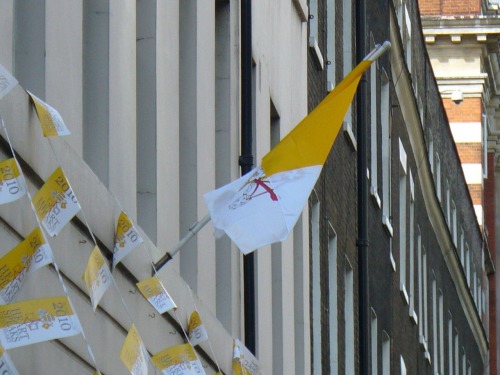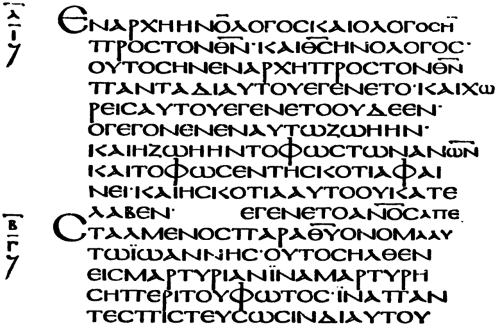
As we traveled through Great Britain, it was soon evident that the upcoming papal visit was a hot topic. Our tour guides commented on it, and from Scotland to England we heard about how the head of the Roman Catholic Church was coming to the United Kingdom by royal invitation for the first time. The building next to our hotel in London proudly displayed the flag of the Vatican City and was bedecked with yellow and white streamers, and each edition of the London Evening Standard during the time we were there had a story on the pope on the front page.
Of course the event fomented much controversy. Many objected to the pope’s coming, but the fact remains that he came, and that alone is significant. Every time I heard or saw an allusion to it, I thought about how Catholics have often been persecuted in Great Britain since the time of Henry VIII, and how ridiculous it would have been in past years for the head of the Catholic Church to set foot in the land where the Church of England held sway. Such a thing would never have happened, and demonstrates how ecumenical people of all denominations—even traditionally conservative Catholics—have become. After all, if it doesn’t matter what church you belong to, even once-hostile Anglicans and Catholics can unite.

 Esperanto isn’t a language I talk about much, perhaps because it isn’t very well known among the general populace of the world, and perhaps because I haven’t had much occasion to speak it. But I have been learning it for more than a year now, and a couple of evenings ago I finally got to talk to some real live Esperantists in London.
Esperanto isn’t a language I talk about much, perhaps because it isn’t very well known among the general populace of the world, and perhaps because I haven’t had much occasion to speak it. But I have been learning it for more than a year now, and a couple of evenings ago I finally got to talk to some real live Esperantists in London.